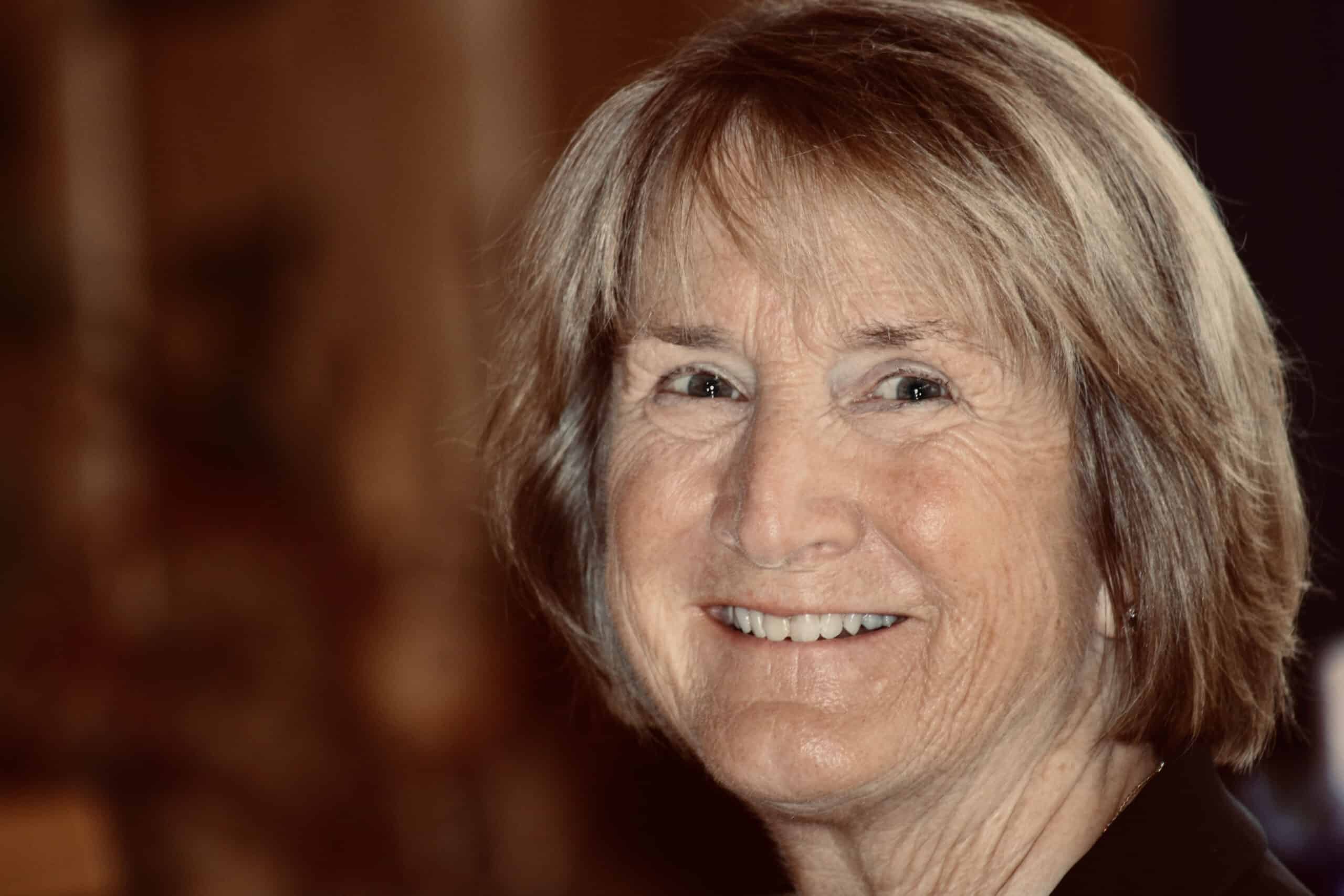Distinguished Career Award Recipient
Nina Dronkers

 The Society of the Neurobiology of Language is pleased to announce the 2023 Distinguished Career Award recipient: Nina Dronkers
The Society of the Neurobiology of Language is pleased to announce the 2023 Distinguished Career Award recipient: Nina Dronkers
The Distinguished Career Award is generously sponsored by Language, Cognition and Neuroscience.
Tuesday, October 24, 2023, 5:15 – 6:00 pm, Auditorium
Chair: Kate Watkins, University of Oxford
Speaker: Nina Dronkers, University of California, Berkeley and University of California, Davis
Nina Dronkers is an inspirational leader in the field of neurobiology of language. Her careful attention to the neuroanatomical correlates of symptoms of aphasia has significantly advanced our understanding of the neural basis of language, challenged dogma, and stimulated new avenues of investigation. She and her colleagues pioneered the use of voxel-based lesion-symptom mapping, which has become an important tool for relating cognitive functions to discrete brain regions. She examined lesion overlap maps in stroke patients and demonstrated that damage to a small part of the anterior insula, not the overlying cortex of classical “Broca’s area”, was associated in all cases with apraxia of speech. Further, when the insula was spared, speech apraxia was not evident. This dissociation was groundbreaking, and led to a reevaluation of the importance of the lateral inferior frontal cortex to speech function. She extended this by scanning the two brains evaluated by Broca in his original 1861 paper establishing “Broca’s aphasia”. Dr Dronkers described how the lesions extended much more medially than originally determined and included the insula and important fiber pathways. These new findings further challenged the field’s century-old reliance on Broca’s original description of the left inferior frontal cortex as critical to expressive language.
For over 40 years, Dr Dronkers has carefully characterised the language deficits in large numbers of patients with acquired brain damage through stroke. Her linguistic training and clinical expertise, coupled with detailed anatomical information from brain scans, has allowed her to relate specific brain areas to detailed language and cognitive functions. She was also early to embrace the potential of diffusion imaging to understand the role of damage to white matter pathways underpinning communication between brain areas in the language network. This work has influenced clinic practice by improving diagnostic tools and developing interventions for patients with aphasia.
In addition to extensive and remarkable scientific contributions, Dr Dronkers has been an outstanding leader. She has led and participated actively in both the Society for Neurobiology of Language and the Academy of Aphasia. She has reviewed extensively for the journals in our field and served on numerous funding committees. She is frequently asked to contribute to teaching and give invited talks in clinical and university settings at home and abroad. She has also created a patient referral pool of left hemisphere stroke patients with aphasia who are eager to participate in research, with new participants constantly being referred from fellow clinicians, colleagues, or former patients.
Dr Dronkers is an exceptional teacher, and loves to collaborate and share her expertise with colleagues. She fosters a nurturing and intellectually stimulating environment, and has mentored, and inspired, many in our community. She has facilitated the careers of many young scientists and influences colleagues at all levels who seek to follow her example of leadership.
